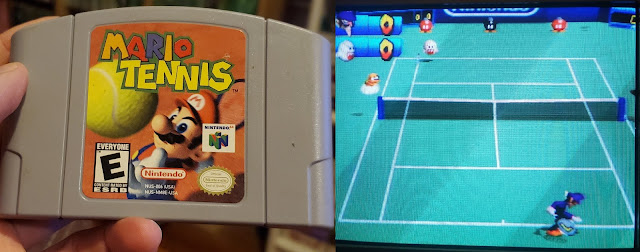Collection essentials #518: Final Fantasy Tactics Advance (GBA)
The original Final Fantasy Tactics on the PlayStation is one of the most beloved strategy RPGs of its era. It wasn’t the hottest seller in the world, but it’s one of those games that developed a deeply passionate fanbase. The fact that the game literally got a new remaster on modern consoles less than a week before I’m writing this is testament to its impact. I, of course, wrote about the game already in this very blog.
There’s no way Square wasn’t going to make some kind of follow-up. And so, a few years later when they were reconnecting with Nintendo, and said company had a new handheld system which would be a nice platform for tactical RPGs, Square decided that it was the perfect time to make a new Final Fantasy Tactics game.
Story-wise, this game is not connected to the original. This time you play as a boy named Marche who lives in what appears to be the real world. One night, he and his friends somehow get transported to what appears to be a magical dream world. He quickly realizes that this world seems to be based on a computer game called “Final Fantasy.” Instead of embracing this new magical fantasy world, he sets out on a quest to return things back to normal.
Gameplay-wise, the basic gameplay concepts are pretty much the same as in the first game. But, not surprisingly, there are a variety of differences. Some mechanics from the original game, such as zodiac signs and “bravery” and “faith” attributes which were a little unintuitive, are absent in FFTA. This game introduces various races of playable characters such as Moogles and Bangaa, and each race has their own pool of character classes they have access to. There’s a new “Law” system in place where certain types of actions are outlawed or encouraged in a given battle, something that applies to both your characters and enemies alike. Learning skills is done differently, as now units gain skills that are “attached” to certain weapons and armor which they will permanently learn upon using that piece of equipment a certain amount (a system much like what we saw in Final Fantasy IX, for example).
I first tried out the original Final Fantasy Tactics back around the same time that Advance was released. Unfortunately, things didn’t go well for me as I found the game too difficult and unintuitive to get into. But I didn’t write off the whole series just from that bad experience. A short while later, I decided to give Tactics Advance a try, and bought the copy shown in the photo (complete with the box and manual) at a local game store. And sure enough, FFTA was a much better experience for me back then. I found it a little easier to get into and understand. There were some difficult chapters that I struggled with, but in the end I got through the whole game and enjoyed it a lot.
Final Fantasy Tactics Advance was a success, garnering critical acclaim and respectable sales. While most gamers liked it, though, it had its share of critics. I remember a lot of those critics were fans of the original game who weren’t keen on the changes and new stuff that FFTA brought to the table. This is understandable to an extent, as the story is completely different, and a different set of gameplay mechanics is not going to be to everyone’s liking. Some people seemed overly bothered by the “law system” which forbids certain actions. One could argue that it’s not a great mechanic, but some players didn’t seem to understand how it worked exactly. You can see on the world map which actions are about to be forbidden in a given battle, and in fact you can even manipulate the law by moving around on the map extra squares so that the actions of specific types of enemies will be forbidden, giving you a huge edge. If a player doesn’t understand that, they can instead find themselves badly hindered in a fight and therefore frustrated at the game.
I feel like FFTA is a game that deserves more love. I hardly ever hear people talk about it in modern times, as the original FFT is the one that is by far the most remembered in the series. It’s hard for me to measure it against the original since it’s been so darn long since I played it myself, but it’s a good game in its own right that stands out in various ways. For me, because I had a good experience with this game, it probably gave me a lot more of an inclination to go back and try the original FFT, which I wound up liking a lot. It’s more than earned its place as an essential in my collection.




Comments
Post a Comment